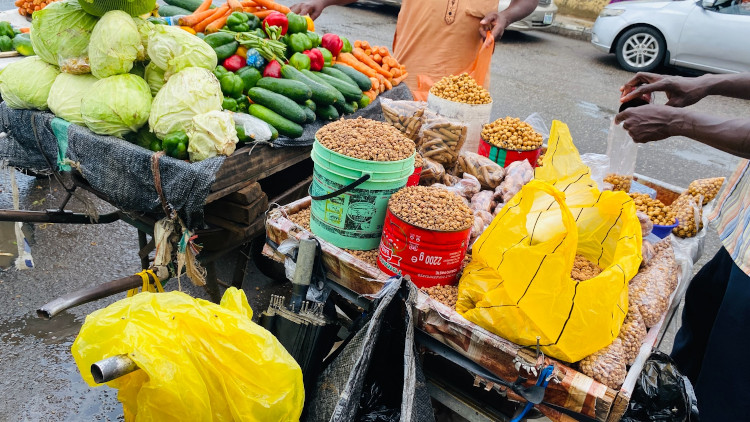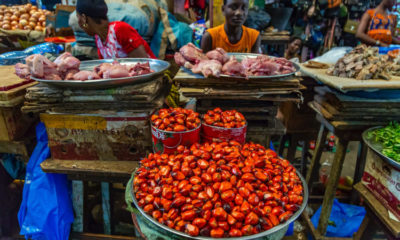Headline Inflation rate declines to 18.12% In April 2021, 0.05% Lower Than March 2021 Rate. The consumer price index, which measures the rate of change in the price of goods and services, dropped to 18.12 percent in April from 18.17 in March.
The decrease in headline inflation marks the first decline in the last 20 months since 2019 when it slowed from 11.08 percent in July to 11.02 in August. The National Bureau of Statistics (NBS) stated this on Monday in its April consumer price index/inflation report.
The food inflation also reduced to 22.75 percent in April from 22.95 in March.
In April 2021, food inflation on a year on year basis was highest in Kogi (30.52%), Ebonyi (28.07%) and Sokoto (26.90%), while Abuja (18.63%), Akwa Ibom (18.51%) and Bauchi (17.64%) recorded the slowest rise in year on year inflation.

On month on month basis, however, April 2021 food inflation was highest in Kebbi (2.46%), Ekiti (2.42%) and Kano (2.17%), while Abuja (0.05%) recorded the slowest rise in a month on month food inflation with Rivers and Ogun recording price deflation or negative inflation (general decrease in the general price level of food or a negative food inflation rate).
The urban inflation rate increased by 18.68 percent (year-on-year) in April 2021, down by 0.61 the rate recorded in March 2021(1.60), while the rural index also rose by 0.95 percent in April, down by 0.57, the rate recorded in March 2021 (1.52 percent),” the report said.
“The rise in food index was caused by increase in prices of Coffee, tea, coca, Bread and cereals, soft drinks, milk, cheese and eggs. Vegetables , Meat, oils and Fish and potato, yam and other tubers.
“On a month-on-month basis, the food sub index increased by 0.99 percent in April 2021, down by 0.91 percent points from 1.90 percent recorded in March 2021.
The report noted that food inflation on a year-on-year basis in April was highest in Kogi at (30.52 percent), Ebonyi (28.07 percent), Sokoto (26.09percent), while Abuja (18.63 percent), Akwa-Ibom(18.51 percent), and Bauch (17.64 percent) recorded the slowest rise in year-on-year inflation.
“On a month-on-month basis, however, April 2021 was highest in Kebbi (2.46percent), Ekiti (2.42 percent), and Kano (2.17 percent) while Abuja (0.05percent) recorded the slowest rise in the month-on-month food inflation with Rivers and Ogun recording price deflation or negative inflation.” the report added.
In April 2021, all items inflation on year on year basis was highest in Kogi (24.33%), Bauchi (22.93%) and Sokoto (20.96%), while Abia (15.94%), Kwara (15.70%) and Katsina (15.58%) recorded the slowest rise in headline Year on Year inflation.
On month on month basis, however, in April 2021 all items inflation was highest in Kebbi (2.24%), Cross River (1.99%) and Jigawa (1.78%), while Ebonyi (0.12%) recorded the slowest rise in headline month on month with River and Ogun recording price deflation or negative inflation (general decrease in the general price level of food or a negative food inflation rate).
Related
















